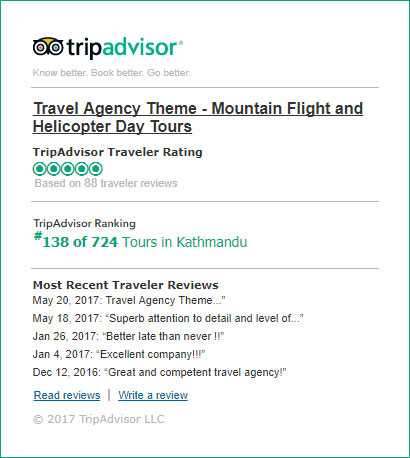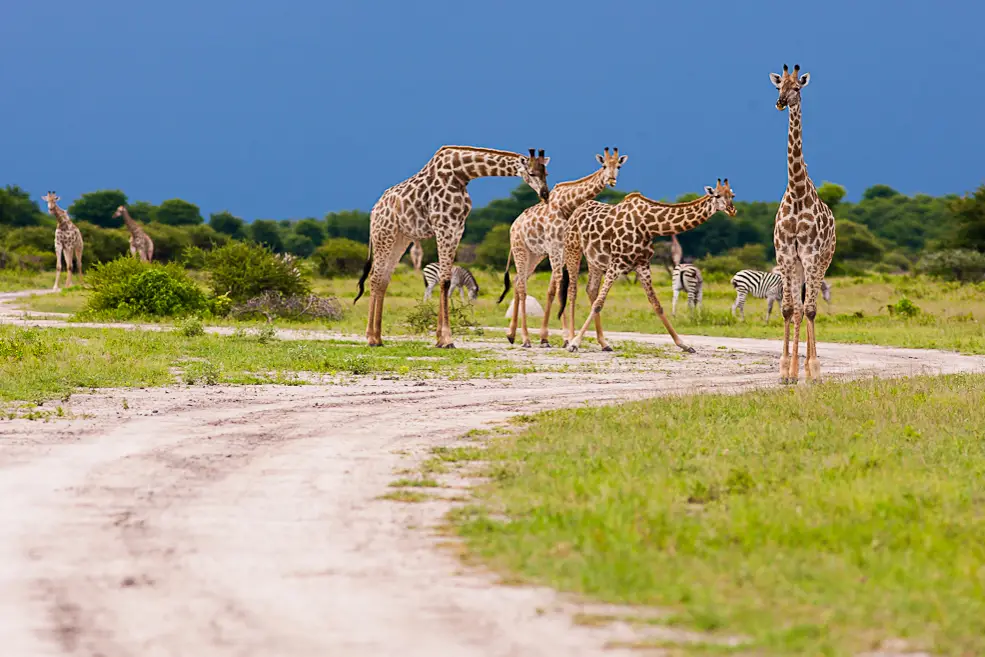Uzbek Food, Wine and Culture
Visit: Tashkent- Khiva – Bukhara – Nurata – Aydarkul – Samarkand -Tashkent – Fergana – Tashkent
March to November
11 days/ 10 nights
Accommodation: 2, 3, 4 */ yurt
For millennia Uzbekistan has benefited from its location in the middle of Silk Route. With goods traded between East and West. Caravans stopped at the inns and markets, bringing with them exotic produce. Uzbek cuisine today is a delicious blend of eastern and western influence with herbs, spices and fresh local produce, including fresh fruit and nuts.
Explore the beautifully preserved Silk Route cities and their stunning architecture on this immersive journey where you will also visit markets, restaurants and homes to learn about the local cuisine as well as how to cook delicious Uzbek dishes.
Overview
Step into a world where the Silk Road’s legacy meets Central Asian warmth, and every meal tells a story. Uzbekistan offers a deeply flavorful journey through food, wine, and centuries-old cultural traditions that make it one of the region’s most captivating—and underrated—travel destinations.
Highlights
- Guided Sightseeing of three famous Silk Road UNESCO cities - Khiva, Bukhara, Samarkand
- Support Community Tourism Project of the Nurata Mountains
- Taste local delicacies in restaurants and home cooking with local families
- Cookery class and dinner with local family
- Oriental Bazaar Visits for local produce, spices and handicrafts
- Visit a local hamman or bath house
- Kebab and Fish BBQ
- Bactrian Camel Ride and Mountain Lake Dip
- Overnight in a Yurt
- Visit a winery
- Teahouse visit ad culture
Itinerary
Tashkent is the capital and a vibrant business metropolis of Uzbekistan. Located where agricultural oases meet endless Eurasian steppes, Tashkent boasts two thousand years of history and blends antiquity with modernity. Alongside and below the many new high-rise buildings is the Old City – “Chorsu”. Here, you will see ancient madrassahs, mosques and an enormous Oriental bazaar.
Chor-Su Bazaar dazzles the senses with its sights, sounds, smells and tastes! Ceramics and carpets, artisan products, clothing and foodstuff of all kinds. Fresh fruit and vegetables, “lepyoshka” (oriental flat bread), tasty snacks and oriental spices – foody heaven!
This evening you will visit a famous local restaurant where you can savour the traditional Uzbek dish – plov. Traditionally made of rice and mutton, plov possesses a specific flavour, being saturated with exotic spices and the smoke from being cooked on open fire. In Uzbekistan they say that only men can cook genuine plov! Accompaniments to plov include: kazy, khasyp, somsa, meat rolls, aychik-chuk (national salad), lepyoshka.
You will also get to taste the aromatic shurpa (the national soup), made from lamb (although sometimes chicken is used too) and plenty of fresh vegetables, herbs and spices.
For dessert you can delight in the famous juicy watermelon or cantaloupe melons. It is said that nowhere else in the world one can find such a sweet and aromatic melon as in Uzbekistan!
Fly to Urgench – the administrative centre of the Khorezm region, next to Turkmenistan. Transfer to Khiva (35 km, 30 min) – described as “Museum under the open sky” since the whole old city “Ichan-Qala” has UNESCO status. It is as if time has stood still in this wonderfully preserved medieval oriental city.
Here you will tour the ancient alleyways of the “Ichan-Qala” on foot. Visit the Khans’ castle – Kunya-Ark, Kalta Minor Tower (short minaret), Muhammad Amin-Khan – the biggest medieval madrassa in Khiva, Djuma Mosque with 220 wooden columns and a minaret.
After taking in so much history and magnificent architecture it is time for a lunchtime tasting session in a renowned local restaurant.
You will get to try Khiva specialties: “tukhum barak” boiled egg dumplings, “gumma” – onion and minced lamb pasty’s, and “shivit-oshi – green noodles topped with a red vegetable sauce. Accompanied by assorted fresh local salads, bread, and seasonal fruit after season
After lunch it’s time to unwind or wander the streets and bazaars, building up another appetite for dinner in a local hostelry.
Tonight you will sample “‘Dumlama” a traditional Uzbek/Turkic harvest stew – made with potatoes, onions, garlic, carrots, tomatoes, turnips, peppers, cumin, cabbage, and lamb, veal, or beef. The ingredients are carefully layered and slow cooked so that the juices are infused with different flavours. In the Turkic language group dimlama and similar words mean to boil which perfectly and simply explains this dish.
After dinner it’s time to explore the old quarter by night. At night the city’s monuments are spectacularly lit up. As you wander the silent alleys beneath the star studded sky and gaze up at the graceful minarets, you can easily imagine yourself in one of Scheherazade’s tales.
A fascinating drive to Bukhara today through the famous Kyzyl-Kum desert. The endless sands were travelled for millennia by the trade caravans – exchanging western and eastern goods. One of the reasons the food of this region is so diverse. There are no high modern buildings or wide busy highways here, so it is a picnic en route – comprising of Uzbek shashlik bbq of onions and lamb kebabs.
Arrival at your hotel in Bukhara in the late afternoon. Time to stretch your legs with a walking tour of the old city, a UNESCO world heritage site dating back over 2000 years. It is considered the most complete example of a medieval city in Central Asia.
Dinner and overnight at your hotel. Tonight’s menu includes: Thcouthcvara – soup with small dumplings, Atchik tchutchik – salad of fresh tomatoes and onions and Samsa – crispy puff pastry parcels filled with tender minced lamb and mint.
The rich medieval architecture has been restored, and have become the integral part of the modern city. This morning you will tour the sights visiting the Labi Khaus Complex at the heart of the city, the Ark Citadel, Ismail Samani and Chashma- Ayub Mausoleums, Kalon Architectural complex, Trade centres of old Bukhara.
Lunch in a traditional restaurant where you can try kebabs and manti – dumplings.
The cultural sights of Bukhara are wonderful but so is the local cuisine, and this evening you get to taste some real home cooking with a local family!
Your local hostess will prepare chuchvara for you – sometimes called varaki-chuchvara. Chuchvara is a special kind of meat dumplings with a flavoursome broth. The dumplings can be served up as main dish as well with either a herby tomato sauce or Suzma – yogurt with herbs. Delicious!
You will be shown how to make the dumplings and get a chance to make some yourself. Also sample Mastava, a soup with meat and rice , with caraway and pumpkin and tomato stuffed aubergine rissoles.
Uzbekistan is Central Asia’s largest wine producers and you will sample good home wine: fortified or dry. Followed by fragrant tea with stuffed quince dessert.
See the four minarets of Chor Minor, and the summer residence of the emirs of Bukhara,
Lunch in a typical restaurant: chicken soup, plov, an assortment of salads, melon and watermelon.
After dessert, Bukhara spiced tea with cardamom, cinnamon, cloves, star anise, mint and oregano.
This afternoon at leisure to explore further or perhaps visit the oriental Bukhara baths .
Dinner at local restaurant where you can try noodle soup, Somsa, Kebab and Dimlama.
Travel to Nurata, located in the foothills of the Nuratau Mountains, via Guijdouvan to see the famous local ceramics being made.
Nurata is the cultural centre of the Navoi mountainous region. It was chosen as a settlement as long ago as 40 thousand years, due to it being a large oasis fed by a sacred spring – the Chashma. The waters of the Chashma are said to have healing properties and both the spring and the fish which live there are sacred.
Lunch is in a traditional teahouse – Choikhona where you can sample Tandir kabob – spit roasted lamb over the embers of a wood fire in tandyr-oven.
This afternoon is time for your steppe adventure. Camel riding will be followed by an unforgettable evening in the middle of the steppe. Dinner will be in a yurt – an excellent Dimlama – beef stew with potatoes.
Sleep in a yurt (collective accommodation unless pre-booked).
After breakfast take a camel ride across the steppes and dunes to reach Aydarkul Lake. Many fish include carp, perch, bream and cat-fish, and numerous birds such as the Dalmatian pelican, white-tailed eagle and black vulture.
If weather permits you can take a dip in the lake, followed by a fish bbq.
On arrival in Samarkand later on this afternoon visit Gur Emir mausoleum which was built by order of Tamerlane.
Dinner at local restaurant in town: delicious shashlik kebabs of lamb, veal, chicken, with tomato and peppers.
Take a guided stroll through this majestic Silk Road city. A place that can boast of 25 centuries of alluring beauty, cited by poets and historians of the past as “A precious gem of the oriental Muslim world”, “Eden of the Ancient Orient”, “The beauty of the universe”, “Rome of the Orient”…
After a morning exploring the unique culture and architecture you’ll head for lunch in a Uzbek choikhona – teahouse.
It’s a chance to try delicious steamed dumplings with various flavourful spiced fillings. And, as is proper after any Uzbek meal, you will finish with tea. In summer the locals prefer to drink green tea, because it quenches thirst, whereas in winter it is mostly black tea which makes you warm and relaxed on frosty days! Different regions also have preferences, black in Tashkent for example. Green tea is also seen as a sign of hospitality. Choikhona are an important part of Uzbek society and traditions. Preferably located in shady locations – such as beside a cool running stream. It is where locals gather for friendship and gossip over endless cups of tea and local snacks.
Revitalised after your convivial lunch at the teahouse, continue touring the city. In it’s long history Samarkand has acquired many tales and legends of joy and also sorrow. Your local guide will tell you many stories about this legendary city, and it’s fascinating history.
This evening you are invited to a village in the suburbs to taste shashlik and barra kabob– a dish made from well marinated lamb cooked in a tandyr.
In the Orient the appropriate drink for shashlik and barra kabobs is red wine, and Uzbek red wines are famous across the region.
Continue your sightseeing of Samarkand. Magnificent Registan square is enclosed on three sides by the grandeur and elegance of three madrassahs – Ulugbek’s madrassah (15th century), Sher-Dor and Tillya-Kari madrassahs (17th century).
Other sites on your “menu” today are architectural complex Shakhi-Zinda (the 10th – 19th centuries), Gur-Emir mausoleum (15th century), Afrosiab site, Saint Daniil grave, Bibi-khanum mosque (early 15th century), and many other monuments that have retained the spirit of antiquity.
Lunch as usual allows you to sample the local cuisine. Beginning with lagman – a dish which is wide-spread throughout Central Asia. There are Uzbek, Uygur and Dungan kinds of lagman. In Uzbekistan the main ingredient is pasta or stretched noodles. And then a meaty sauce named vajja. It is somewhere between a soup and a stew. Some people call lagman a noodle soup, others consider it to be the main course as sometimes it is quite thick. Along with it you will eat lepyoshka (oriental flat bread). The authentic Samarkand lepyoshka should be baked in a tandyr.
With around 200 sunny days a year Uzbekistan is perfect for growing grapes. More than 300 types of grapes grow in Uzbekistan. You will be able to visit the Samarkand Winery, to taste 10 of the best varieties of Uzbek wine, and take a tour of the Museum.
Return to Tashkent where you will have the rest of the day at leisure. You may wish to mix with the locals in one of the many parks, or explore the artistic wonders of the metro. When you return home you may want to recreate some of the dishes you have tasted so visit Chorsu bazaar where you can pick up some spices and tea along with other souvenirs for your family and friends!
Tashkent offers a diverse range of cuisine as its population constitutes a heavy mix of foreigners and diverse ethnic community. In Tashkent you can savour the dishes of Uzbek, European, Chinese, Korean, Kyrgyz, Uigur, Japanese and many other cuisines. If you are looking for somewhere special to eat for your final meal you will be spoiled for choice and we are happy to make recommendations or reservations.



Write a Review